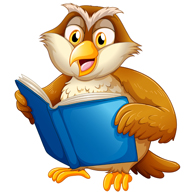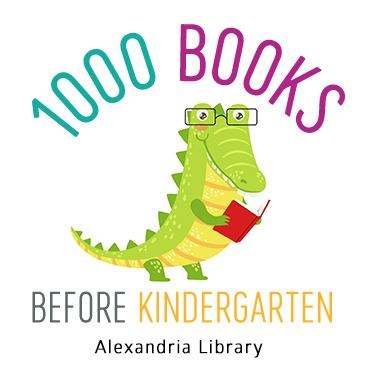EARLY LITERACYWe all know that children aren’t born ready to read. That’s where Early Literacy comes in. Early Literacy is what a child knows about reading and writing before he can read and write. It is the preparation for learning to read. Parents can easily support this preparation through: |
 |
Talking with your child provides her with basic language skills. Families differ considerably in how much they talk to their babies and toddlers! Emerging data shows that children whose parents talk to them a lot enter school with stronger verbal skills and larger vocabularies, better prepared to learn to read.
Children love to sing! It is fun and, through singing, they learn to break down words into their smallest parts, which goes hand in hand with sounding out words.
Even when your child is just a baby, reading aloud to him provides great benefits. He learns what a book is for, how it’s used, and that it’s interesting. In time, he will understand that the lines and squiggles convey meaning; he’ll learn to study the pictures for clues to the story, and he will learn a wealth of information from even the simplest books. Best of all, when reading with a parent is a happy time of sharing and closeness, he’ll learn to love books and reading!
When children play, they are learning to make sense of the world. For example, blocks help them to understand the physics of when structures will stand and when they’ll fall down, but they also help them to distinguish between shapes – and what are the letters of the alphabet but different shapes? Role playing, puzzles, mirrors, musical instruments and more all promote early literacy, and when you play with your child, she benefits from your knowledge and experience. No flash cards required!
As your child gets closer to kindergarten, his pretend writing will help him develop fine motor skills. When you have him help you write up lists for groceries or other essentials, he’ll learn how writing will be important in his life.
Focus on helping your child love reading and books. Children who love books and reading will read voluntarily in their school years, and more reading equals stronger reading skills.
Make reading time discussion time. While reading, ask your child to predict what will happen next. Talk about the story or pictures, especially if the child is enthusiastic.
Set aside a portion of each day to read with your child. Many people read at bedtime, but any time is good if your child is engaged.
For very young children, select books with very few words on a page. Simple words and pictures will fascinate and inform the child about his world. Older children can also learn a lot from a book with detailed pictures and few words.
Follow your child’s lead. Don’t force your child to sit and read, but look for times when she is open to reading. Remember, a major goal of reading aloud is developing a love of books. Reread books that your child especially enjoys.
Print Awareness. Understanding how books and print convey meaning.
Letter Knowledge. Knowing the alphabet and recognizing the shapes of the individual letters.
Vocabulary. Understanding the meanings of words. The larger the vocabulary, the more the child will understand when spoken to, when read to, and, ultimately, when reading.
Phonological Awareness. Being able to hear the smaller sounds within words.
Background Knowledge. Knowing enough about the world in general to make sense of new information and stories.
